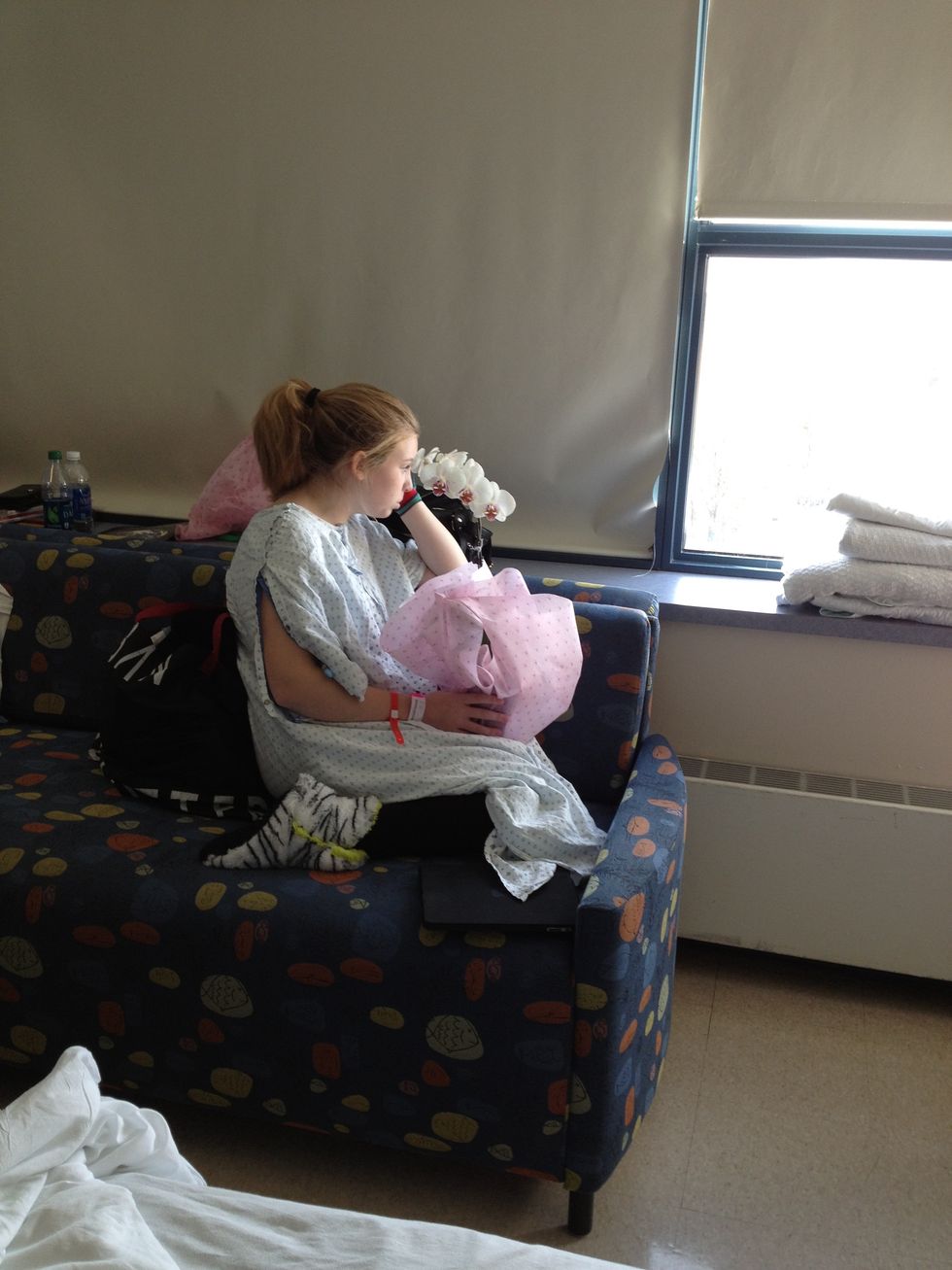When I was fifteen, I heard three little words that changed my life completely: "You have cancer." The doctor told me that I had papillary thyroid cancer. I just could not believe that it was true. I believed cancer was the kind of thing that happened to other people, not me. My grandfather had cancer multiple times and I truly thought that cancer only happened to older people and a few really unlucky kids. I was only a few weeks into my sophomore year of high school and, up until this point, I had never broken a bone, had a surgery, or had my blood drawn. The most pain I had ever felt was probably from falling down the stairs and spraining my wrist. I was completely terrified. However, being a fifteen-year-old girl, my first question was "will I have to lose my hair?" The doctor assured me that I wouldn't have to lose my hair but I would have to have surgery as soon as possible. We scheduled my surgery for November of 2012, about two months after my diagnosis.
When the day of the surgery came around, I was petrified. The doctors had told me that surgeons would be removing my thyroid and a few surrounding lymph nodes but that my scar would only be about an inch long. I felt like I was going to throw up and I had to be given a drug that the nurses called "truth serum." My surgery lasted about eight hours and I was unconscious for a few hours after the surgery. I was completely unprepared for what I faced when I woke up. No one had told me that my throat would be so swollen I could barely breathe because of the breathing tube that had been down my throat. I also wasn't expecting my scar to be about six inches long because the surgeons had discovered more cancer than had been originally detected. I could barely move my head because of the length of the scar. I had to stay in the pediatric intensive care unit for a few days and could hear other children screaming and crying from my bedroom. My only saving grace was my nurse, Jess, who I immediately bonded with.
When I went home, I thought that everything would be easier. However, I was completely wrong. I could still barely move my head and I felt nauseous almost 24/7. I was miserable but tried to go to school and be a normal high schooler. About a month after my surgery, I went through a radioactive iodine treatment. I had to be in isolation for three days because I was radioactive and I could not be within three feet of any living thing for more than a minute. My mom and I stayed in adjoining hotel rooms and left the connecting door open so that I could at least talk to someone. I had to keep everything I touched covered so that I wouldn't leave any radioactive residue on anything. Anything that was too big to be kept covered had to be washed multiple times or wiped down when I was done using it. The worst part of the radioactive treatment was my allergic reaction to it. I developed a 103 degree fever but could not be taken to the hospital because I was radioactive. I lost my appetite completely and pretty much slept for three days straight. The only time I woke up was when I had to drink an entire bottle of water or suck on a hard candy to remove the radioactive iodine from my salivary glands. I was completely miserable. After the treatment, I went in for a scan of my body to see if there was any remaining cancer. It was the day after Christmas when I found out that my cancer had spread to my lungs. After this, I had to be monitored often and became a frequent visitor at the hospital. I have also had to have my blood drawn at least a few hundred times since then. Now, I am doing much better and my cancer levels have continued to get closer to zero every few months.
I still do have cancer, and my journey has certainly not been an easy one. However, it taught me so much about myself and my strength. My experience was traumatic, to say the least, but it helped shape me into the person I am today. I came out of my experience as a better person and I am so happy for that. Now, looking back, I wouldn't change a thing and I am so proud of my past.




















